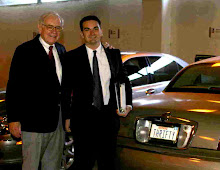Debt-financed Dividends Part II
The truth is that probably most any big company could obtain the debt financing needed pay a large special dividend if it so chose. The question, then, is why would it make this decision.
On March 2, Dean Foods (DF) announced a special dividend of $15 per share payable on April 2 and funded entirely by a senior, partially secured, credit facility. The stock currently trades at $48. The corresponding conference call and press release were titled “Dean Foods Announces Plan to Return Approximately $2.0 Billion to Shareholders.” I might argue that no cash is actually being “returned” to shareholders, since the capital the shareholders contributed is still tied up in the company’s assets. Rather, the company is merely transferring money from its lenders to its equity holders.
Management repeatedly refers to the set of transactions as a recapitalization. There is certainly nothing wrong with a recapitalization if the company believes that it needs to restructure its balance sheet. In fact, oftentimes a restructuring would benefit the firm. For instance, if its cost of equity capital is tremendously higher than its cost of debt, then adding more debt to reduce the cost of equity might be worthwhile. Typically a firm will achieve such an objective by issuing debt (or any type of borrowing) and repurchasing stock, and if stock is more costly than debt then it will have reduced its cost of capital. Interestingly, at the same time it announced its special dividend, Dean Foods also announced it was discontinuing its share repurchase program.
Could it be that the firm is reluctant to repurchase its shares because it believes they are overvalued?
Although Chairman Gregg Engles makes passing reference to a desire to reduce the cost of capital in the conference call, he does not elaborate. Maybe this is because the transaction does not actually achieve a lower cost of capital. It may reduce the firm’s average cost of capital by increasing the debt-to-equity ratio, but the overall dollar cost will not improve. This is because that special dividend is itself a cost of equity and is being paid for with debt, which has its own cost. Of course, the same could be said for borrowing to repurchase shares. But if the impact of the new debt on the firm's current credit rating is significant enough, it could easily negate the benefit from any savings from reducing the level of equity capital.
But the rest of the management’s comments aren’t consistent with those of a firm desiring more leverage. When pressed about the impact the new leverage will have on earnings, Engles tells a Bear Stearns analyst that the company should be “back at our current leverage level… by the end of ’09.” A transaction that alters the balance sheet for only two years doesn’t sound like something designed to generate a “more appropriate capital structure.” If it is a temporary exploitation of cheap debt, then why do the company representatives neglect to discuss the actual terms of the borrowing, which would evidence the relative benefits of the transaction? And why do company representatives fail to discuss what impact the transaction will have on the company’s existing cost of debt?
In the Q&A portion of the conference call, the sell-side analysts were certainly not reluctant to congratulate the company on the transaction. But although the deal is extraordinary, it doesn’t seem to really produce any particular benefit to the company or any of its stakeholders, at least none that the call participants ever discuss.
And there is one group of stakeholders, though, that should be the most upset about these transactions, even on a strictly financial level: the bondholders. Ordinarily when a company takes on new debt it uses that cash to boost its productivity. Hopefully, the cash gets used to expand operations or invest in a new line of business. So even subordinate claimants like bondholders ought not get too upset since that new money should be working to ultimately increase income, and debt coverage accordingly. But with these transactions, the money that comes in immediately goes out producing no operational benefit to the company.
Additionally, the new debt is secured and senior, presumably subordinating other claims to the financing of the one-time dividend. This ought to have damaging consequences to the ratings on its corporate debentures, and should outrage bondholders. For instance, CFO Jack Callahan agrees that the expected level of debt paydown will match free cash flow over that time. This is probably why, the day after the announcement, Standard & Poors downgraded the company’s debt citing a “weaker financial profile” and sending its 7% bonds down 3.875 cents. Why then, doesn't the company simply use its next two years' free cash cash flow to fund a new, higher quarterly dividend and avoid higher debt burden?
I guess my conclusion from this part of my musing is that, any way you interpret it, the debt-financed special dividend is not a good signal for a potential investment in the company’s stock or bonds.
FD: I have no position in any company mentioned in this post.


0 Comments:
Post a Comment
<< Home